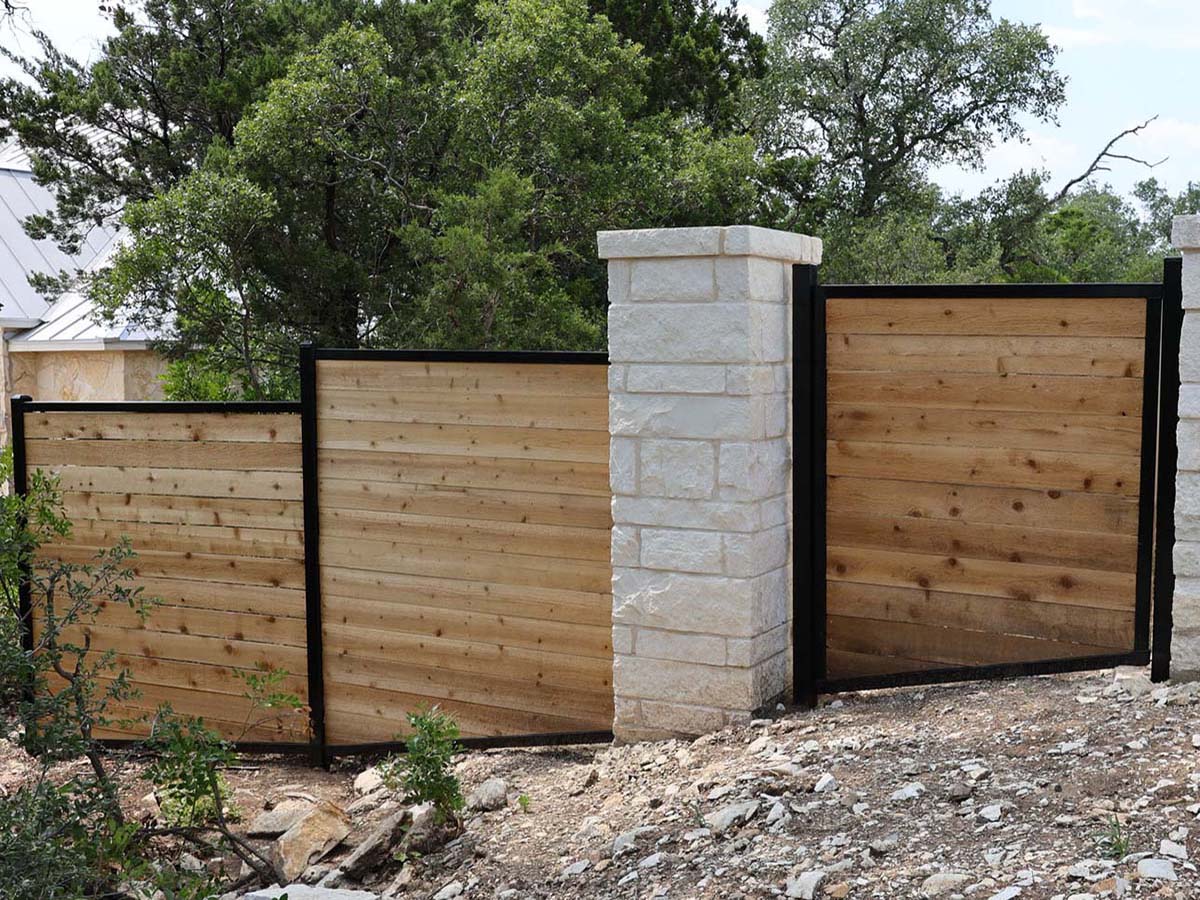All Categories
Featured
What Types of Fence Products Are Readily Available for Residential and Commercial Projects?

When intending to set up a fence, choosing the appropriate material is crucial for meeting the visual, functional, and monetary needs of your residential property. Whether for household or business usage, contemporary fence options provide a selection of selections to match particular demands. Here's a comprehensive consider the most typical fence materials offered today.
- Timber Fencing. Wood is a timeless option for property owners looking for appeal and convenience. It functions well for personal privacy fencings, attractive styles, and border noting.
Key Benefits of Wood Secure Fencing:
Visual Flexibility: Can be crafted right into different layouts, including board-on-board, picket, and lattice styles. Economical: Deals cost for numerous projects, specifically smaller residential ones. Customizable: Easily repainted or stained to match a home's outside. Drawbacks: Calls for regular maintenance, such as sealing and staining, to secure versus weathering and pests.
- Vinyl Fencing. Vinyl fence has grown in appeal as a result of its sleek look and minimal maintenance requirements. It's a terrific alternative for both household and commercial rooms.
Benefits:
Resilient and Resilient: Plastic withstands climate damage, bugs, and fading. Easy Maintenance: A quick laundry with soap and water keeps it looking pristine. Stylish Alternatives: Comes in several shades and structures, some resembling natural timber. Factors to consider: The first price is greater, yet the long-term cost savings on upkeep can make it a smart financial investment.
- Chain-Link Fencing. Chain-link secure fencing is a useful service for protecting huge locations, frequently utilized in business, industrial, and entertainment residential or commercial properties.
Advantages:
Price: Among the most economical fence choices. Longevity: Takes on deterioration, even in difficult environments. Presence: Gives a clear line of vision while maintaining safety. Downsides: Minimal aesthetic allure and privacy unless integrated with slats or foliage.
- Light weight aluminum Fencing. Aluminum uses a sophisticated look without endangering on durability. It's particularly popular for decorative or protection purposes.
Secret Includes:
Rust-Free: Ideal for damp climates or swimming pool rooms. Low Maintenance: Requires very little maintenance contrasted to iron or wood. Classy Appearance: Usually utilized to simulate functioned iron without the hefty cost. Considerations: Not as strong as steel, making it less appropriate for high-security requirements.
- Wrought Iron Fencing. Known for its timeless sophistication and resilience, wrought iron is a favored for high end residential properties.

Benefits:
Toughness and Security: Difficult to break or bend, making it perfect for high-security applications. Customizable Layouts: Can be shaped right into detailed patterns for an unique look. Long life: With correct maintenance, wrought iron can last for decades. Disadvantages: Calls for routine upkeep to avoid rust and is among the much more pricey fence choices.
- Composite Fence. Composite fencings combine wood fibers and plastic for a long lasting, environmentally friendly choice.
Advantages:
Eco-friendly: Often made from recycled products. Reduced Maintenance: Immune to rot, pests, and bending. Natural Look: Simulates the appearance of wood without the upkeep. Disadvantages: Higher ahead of time cost contrasted to typical timber fence.
- Bamboo Fence. Bamboo is a fashionable and lasting selection, particularly for houses looking for an all-natural aesthetic.
Advantages:
Eco-Friendly: Bamboo is biodegradable and renewable. Unique Look: Adds a zen-inspired or exotic touch. Affordable: Typically cheaper than woods. Disadvantages: Less long lasting in severe climates or against extended exposure to wetness.
- Steel Fencing. Steel secure fencing offers unparalleled strength, making it a go-to option for commercial and business requirements.
Attributes:
Durable Stamina: Manages substantial impacts and weather condition challenges. Customizable Finishes: Powder finishing enhances its appearance and durability. Protection: Ideal for areas calling for enhanced security. Considerations: Greater price and weight make it less appropriate for small-scale jobs.
- Masonry or Rock Fence. For buildings looking for a very sturdy and irreversible stone, stonework or choice fencing is a premium choice.
Advantages:
Ultimate Toughness: Withstands extreme weather and lasts for decades. Soundproofing: Blocks sound, making it excellent for city locations. Luxury Aesthetic: Offers a high end appearance that matches premium buildings. Drawbacks: High installment prices and minimal flexibility in layout modifications.
Just How to Pick the Right Material. When picking a fencing material, take into consideration the list below aspects:
Objective: Do you need safety, privacy, or ornamental allure? Spending plan: Some products, like timber and chain-link, are cost-effective, while functioned iron and stone come at a premium. Upkeep: Materials like vinyl and light weight aluminum are much easier to keep, while wood and wrought iron requirement normal treatment. Climate: Some materials, such as bamboo or neglected wood, are much less appropriate for harsh climate condition. Conclusion. Fence products today offer a large range of options to fit various budget plans, features, and designs. Whether you focus on longevity, visual appeals, or eco-friendliness, there's a product that will fit your needs. By functioning with a professional fencing specialist, you can discover these choices thorough and ensure a perfect installation for your residential or industrial job.
Latest Posts
Improve Your Home with Overhead Door Solution
Published May 23, 25
1 min read
Understanding Roof Covering Guarantees: What Homeowners Ought To Know
Published May 22, 25
1 min read
How Consistent Auto Maintenance at Montclare Auto Repair Saves You Money
Published May 22, 25
1 min read